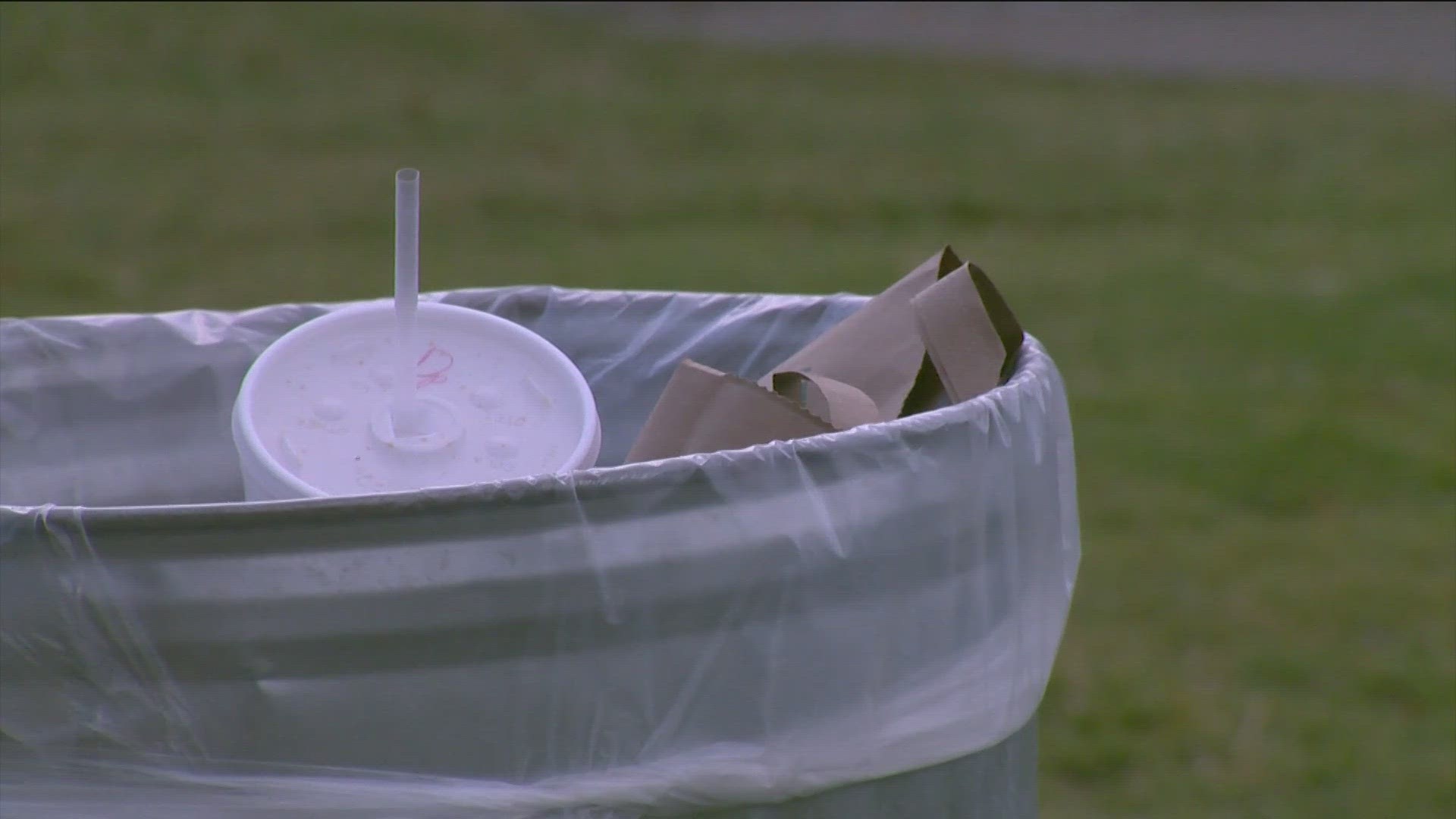AUSTIN, Texas — Trash in Austin's creeks and rivers continues to be a problem. In a memo last week, the City's Watershed Protection Department (WPD) suggested a ban on polystyrene in the city.
Polystyrene, more commonly known as Styrofoam, is one of the most common items found in our waterways. In a statement, a spokesperson with WPD said if it isn't picked up and disposed of properly, the non-biodegradable material may take over 500 centuries to decompose.
Also, because Styrofoam easily breakdown's to smaller pieces, it makes removal difficult – if not impossible.
"Emerging contaminants, microplastics, all of these things that we're starting to learn now affect the bottom of the food chain," said Andrew Clamann with WPD. "Of course, the effects to us immediately is going to be obstruction of flow, as if we have a large flood event and this trash clogs a culvert that could cause localized flooding."
Clamann also discussed the 2022 Trash in Creeks study, which found that the largest amount of trash found in water ways is single-use waste items.
"The most the most commonly encountered item, though, was single use plastics, beverage containers, wrappers, candy wrappers, Styrofoam food containers," Clamann said. "The single use paradigm that we live in finds itself in our hands and then in the creeks."
A spokesperson for WPD provided the following statement regarding the Trash in Creeks study:
"The Trash in Creek Study included benchmarking research into strategies that have been effective in other places. Twenty-nine countries and seven states have regulations limiting polystyrene. The overwhelming opinion of government and nonprofit representatives where bans of different containers were in place was that regulations have the most immediate and largest impact on litter."
This data led WPD scientists to conclude that a prohibition on polystyrene take-out containers would likely be very effective at lowering the amount of litter and polystyrene in our creeks.
However, State law may prevent an outright ban. The next step, according to WPD, is for WPD to work with other City departments to explore the feasibility of limiting or other options to reduce the sale and use of polystyrene.

